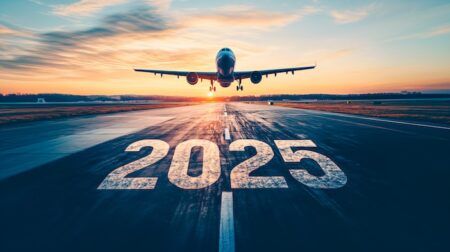The aviation blockchain market is projected to grow from US$421 million in 2019 to US$1,394 million by 2025, at a CAGR of 22.1% during the forecast period. Blockchain enables stakeholders of the aviation industry to share a decentralised digital ledger which stores flight data and supply chain data of airlines. It also facilitates smoother and efficient operations that lead to cost savings. Improved passenger experience, increased transparency and traceability of operations, and reduced maintenance cost and transactional complexities are some of the factors driving this market.
By end market, the airports segment is expected to grow at the highest CAGR between now and 2025. As per CAPA Centre for Aviation in 2017, around US$1 trillion was invested across the globe for greenfield and brownfield airport projects. With the passenger traffic and number of inbound and outbound flights growing, airports are focusing on digitalising and automating processes to increase the efficiency and pace of their operations. For example, airports are adopting blockchain in cargo and baggage tracking, passenger identity management, and smart contract applications.
As the passenger footfall is expected to increase, airports must find innovative business models to lower their operational costs and generate new revenue streams. By leveraging technologies such as blockchain, IoT, and AI, airports can enhance their efficiency, specifically in the area of baggage handling and passenger handling.
The smart contract segment is expected to account for the largest share of the aviation blockchain market during the forecast period. Smart contracts can facilitate automated payment on completion of the task. A smart contract can be programmed using a computer algorithm that receives real-time information. This information can be verified and stored in the blockchain. Smart contracts can be used in ticketing, aircraft refueling, and leasing and supply chain management.
North America is among the major contributors to the aviation blockchain market. The US is expected to lead the market in North America during the forecast period. North America is the most advanced region in terms of technology adoption and infrastructure. The presence of key market players and major airports are the main factors driving the growth of the aviation blockchain market in North America.





